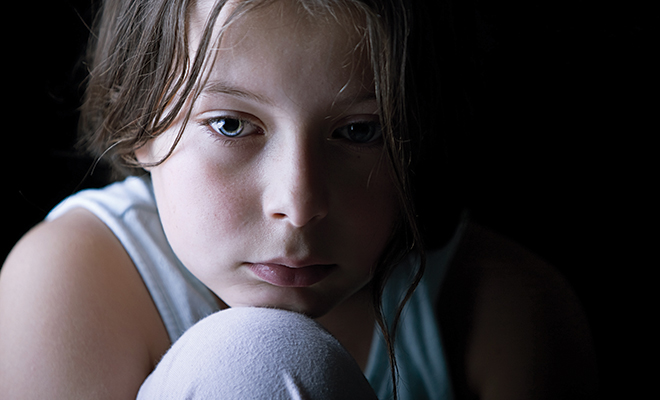
Freeing Yourself from the Past
The awareness that you’re enduring the consequences of one or more toxic parents is a key step in dealing with issues that result from that toxicity. Toxic parents employ negative behaviors that cause lifelong emotional damage in their children and taint the way a person sees himself or herself.
They throw out a steady stream of neglect or verbal, emotional or physical abuse as they judge, disregard, lie, manipulate, demean, disparage or shame. Realizing that you came from a toxic household is key to breaking the cycle for your children.
“If this is something that’s gone on for several generations, breaking that inertia is difficult. But once you do it, you’re going to feel a sense of self-esteem, empowerment and love shared between you and your child,” said Gregory Nawalanic, PsyD, clinical director of psychology and behavioral sciences, The University of Kansas Health System. “It will actually soften the wounds that you experienced from your own childhood.”
Boundaries
Unlike when you were a child, you, as an adult, can set restrictions with your toxic parent. If they cross the line, you can ensure the health of you and your children by taking action. “You survived the hard stuff and you can set boundaries. You’re within your rights. It’s not like when you were a kid, and you were reliant on them,” said Dr. Nawalanic. “You have your own income, job, family, home. You can choose not to have this person in your life. Remember, this parent made the choices they did when you were a child.”
Because parental toxicity is usually intergenerational, the adult child must take extra precautions to ensure another generation of abuse does not continue with their kids. “Make sure your kids know that you love them and help them to feel important and special. Be honest; realize you will make mistakes,” said Dr. Nawalanic. “It can be helpful to think of your kids as little versions of you. Think, ‘What would you have wanted from your parents?’ You can never undo what your parent did to you, but you can bring that forward as a lesson and a guiding light that leads you to do better for your kids.”
I See Myself
If you see a reflection of your actions and words with your own children in this article, it may be driven by the suffering and pain inflicted by your parents. The difference is that you can engage in treatment and give yourself a new direction.
“Find quiet time to think back on your childhood and explore that relationship. How do my parents treat me now? Like a kid? Same pressures? Do they withhold things?” asked Dr. Nawalanic. “If you’re answering yes to these, then it might be time to reach out to a professional. There’s no shame in that.”
Avenues such as family counseling can help troubled families who want to behave better and build a better relationship. “Sometimes you might be able to bring the toxic parent into family therapy, independent of your own individual therapist, to reset boundaries, guide communications and build relationships. A family therapist will help moderate productive conversation,” said Dr. Nawalanic. “You can’t make your parent engage appropriately, but you can have a sense of peace that you reached out and opened the door.”
Mending Fences
While it can be a tough journey to manage your own negative emotions toward your toxic parent, Dr. Nawalanic suggests that the simple act of compassion can be life-changing. “Forgiving someone is so empowering. A handwritten note of forgiveness can be helpful because you have your say without the toxic parent spinning it back to them and playing the victim,” he said. “Sometimes the dynamic is for the parent to bulldoze, belittle and attack. A letter lets you get things out and you can end it with an invitation. ‘I’m happy to discuss this with you. I hope that you understand what I’m trying to say and why I’m trying to say it. I love you and value our relationship and I want more from it for both of us.’ It comes down to connecting and seeing the whole person and the potential for the relationship.”
Dr. Nawalanic adds it is important to understand the circumstances that created the toxic family environment. In the same way we look at a child and see the negative behavior and not the person, he suggests to look at the parent and see that these behaviors have underlying causes and, more often than not, this isn’t who they want to be either. “They came from a system that led them to believe this is the only way to behave,” he said. “Anyone can engage and possibly change; it’s about helping them see the value in making that change. Just because things have been bad doesn’t mean that they have stay that way.”







